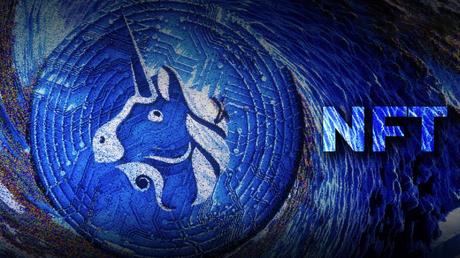
Five months after acquiring the NFT trading aggregator Genie and its founder Scott Gray, Uniswap is launching an NFT aggregator on its website.
Uniswap’s Head of NFT Product Gray said that many people view NFTs and tokens as marketing to different audiences and experiences. This, however, is not the case in reality.
One of the most widely used DeFi protocols for self-custodied token swaps is Uniswap, with an approximate $3.48 billion in unlocked volume. Now it hopes to level the playing field in the NFT industry with its aggregator. Users can purchase a large number of NFTs with a single transaction, compare listing prices and “global floor” prices in seven different markets, and post NFTs for sale in all of these markets.
Uniswap’s NFT solution is more than just a new box with a familiar face inside, though. Gray claims that the smart contract has been revised to offer 15% cheaper gas fees than competing aggregators, and that additional marketplaces have been added.
To celebrate the launch, from now until December 14, Uniswap will offer limited gas rebates on initial transactions for the first 22,000 aggregator customers, up to 0.01 ETH each (roughly $12). The Uniswap app will be able to be used to claim rebates beginning on January 16th.
Although this may not seem like much, Uniswap is also hosting a $5 million USDC airdrop for “selected historical Genie users” on their website in honor of the launch. Genesis NFT and Genie Gem NFT holders will receive $1,000 each, and Genie users who made multiple purchases before April 15 will receive $300 each.
The Uniswap NFT aggregator includes listings and data from OpenSea, X2Y2, Sudoswap, LooksRare, Larva Labs, Foundation, and NFT20. Gray claims that Uniswap has the potential to add more features in the near future, but that most marketplaces currently keep their data off-chain. Thus, Uniswap would need their help in order to acquire the API credentials necessary to link such marketplaces to its website.
Why would one collect together data? Though OpenSea is the most popular NFT marketplace, this could soon change. When more NFT markets appear, trading becomes more complicated and scattered as clients must sign up for many services.
This market dispersion is helpful for decentralization, says Gray, because aggregators simplify what would otherwise be a difficult shopping experience.
According to an interview Gray had, “I think it’s safe to have all this fragmentation as long as you have a really good aggregator because it allows for the users and the creators to be in control rather than the platform.”
And we won’t end up like the [Apple] App Store, where they can yank anything at any time, or where they’re really limiting the NFT industry today because they want a 30% piece of every NFT sale, for example.
Many marketplaces have made it clear that they will (or will not) be adding creator fees for secondary trades, making this an increasingly difficult topic. The Uniswap aggregator does not demand payment from its creators.
Even while Gray acknowledged that “creator fees have been a huge boost for the NFT market,” he made it clear that Uniswap will not implement such costs.
He argued that as an aggregator, they had no right to levy or set creator fees because they did not generate the listings themselves. However, as a result of this, we have made it exceedingly simple for customers to choose which marketplaces they will participate in or skip.
Gray agrees that aggregators like Uniswap’s have the potential to increase adoption.
“If we have a ton of information asymmetry, and a lot of capital inefficiency in the NFT buying experience, then we’re not going to get the mainstream adoption that we need in the space,” he said.
“I see an aggregator like Uniswap more like Google Search, where we’re directing traffic to where it’s most efficient.”
Uniswap’s aggregator will be freely available on GitHub, so anyone may contribute code and provide suggestions for improving the protocol and user experience.
Gray said that Uniswap has no current intentions to implement any new fees into its aggregator.
At launch, the aggregator will only support Ethereum NFTs, but other tokens will likely be added in the future.
Extending to “other chains” is “certainly on our radar,” Gray said.
Although Uniswap’s new aggregator is the company’s first foray into NFTs, it is far from the only one. Unisocks are a limited edition of “phygital” Ethereum NFTs that were distributed by the DEX before and can be “burned” to redeem for a real pair of socks.
When asked why sock NFTs still cost around $20,000, Gray called them a “meme.”
“Hayden is still doing hand deliveries for Unisocks,” Gray said of Uniswap inventor and Uniswap Labs CEO Hayden Adams. For “It has become like a meme for Ethereum OGs and large Uniswap supporters.”
Leave this field empty if you're human: